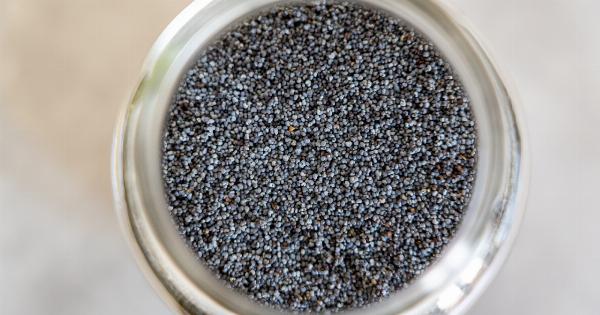Eating a balanced diet means consuming a variety of foods from various food groups. These food groups are essential to provide your body with all the nutrients it needs to maintain good health.
In this article, we will discuss the food groups that you should prioritize for a healthier lifestyle.
Whole grains
Whole grains are an important source of carbohydrates, fiber, and various vitamins and minerals. They are rich in complex carbohydrates, which means they take longer to digest and provide a sustained release of energy, helping you feel full for longer.
Examples of whole grains include brown rice, oats, whole wheat, quinoa, and barley. Aim to include at least 3 servings of whole grains in your daily diet.
Fruits and vegetables
Fruits and vegetables provide a wide range of vitamins, minerals, and fiber. They are also rich in antioxidants, which help protect your body from damage caused by free radicals. Aim to have at least 5 servings of fruits and vegetables in your daily diet.
Try to include a variety of colors, as each color represents different types of nutrients. For example, red and orange fruits and vegetables are high in vitamin C, while leafy greens are rich in iron and folic acid.
Protein sources
Protein is important for building and repairing tissues, and is an essential nutrient for growth and development. Good sources of protein include lean meats, poultry, fish, eggs, beans, lentils, and tofu.
Aim to include at least 2 servings of protein in your daily diet. Choose lean protein sources to reduce the intake of saturated fats.
Dairy or dairy alternatives
Dairy products are an excellent source of calcium, which is important for building and maintaining strong bones. If you are intolerant or allergic to dairy, you can choose dairy alternatives such as soy milk, almond milk, and fortified oat milk.
Aim to have at least 2 servings of dairy or dairy alternatives in your daily diet.
Fats and oils
Fats and oils are important for energy and the absorption of fat-soluble vitamins. However, it is important to choose healthy fats and oils, such as those found in nuts, seeds, avocados, and fatty fish.
Limit the intake of saturated fats and trans fats found in fried foods, pastries, and processed foods.
Water
Water is essential for life, and its importance cannot be overstated. It is necessary for many bodily functions, such as regulating body temperature, transporting nutrients, and removing waste.
Aim to drink at least 8 glasses of water daily, and more if you are physically active or live in a hot climate.
Vitamins and minerals
Vitamins and minerals are essential nutrients that your body needs in small amounts to function properly. They are found in a variety of foods, but it can be challenging to get all the nutrients you need from your diet alone.
Consider taking a daily multivitamin to ensure that you are getting all the essential nutrients your body needs.
Herbs and spices
Herbs and spices not only add flavor to your food, but they also contain many health benefits. For example, garlic and ginger have antibacterial and anti-inflammatory properties, while cinnamon helps regulate blood sugar levels.
Try to include a variety of herbs and spices in your meals to boost the nutritional value of your diet.
Healthy snacks
Snacking can be a healthy part of your diet, as long as you choose nutritious options. Some good snack choices include fresh fruit, raw vegetables with hummus or yogurt dip, nuts and seeds, and whole grain crackers with nut butter.
Avoid high-sugar and high-fat snacks such as candy, chips, and pastries.
Moderation
While it is important to include a variety of food groups in your diet, it is also important to practice moderation. Consuming too many calories can lead to weight gain and increase your risk of chronic diseases.
Be mindful of portion sizes, and avoid overeating. Listen to your body, and stop eating when you feel full.































